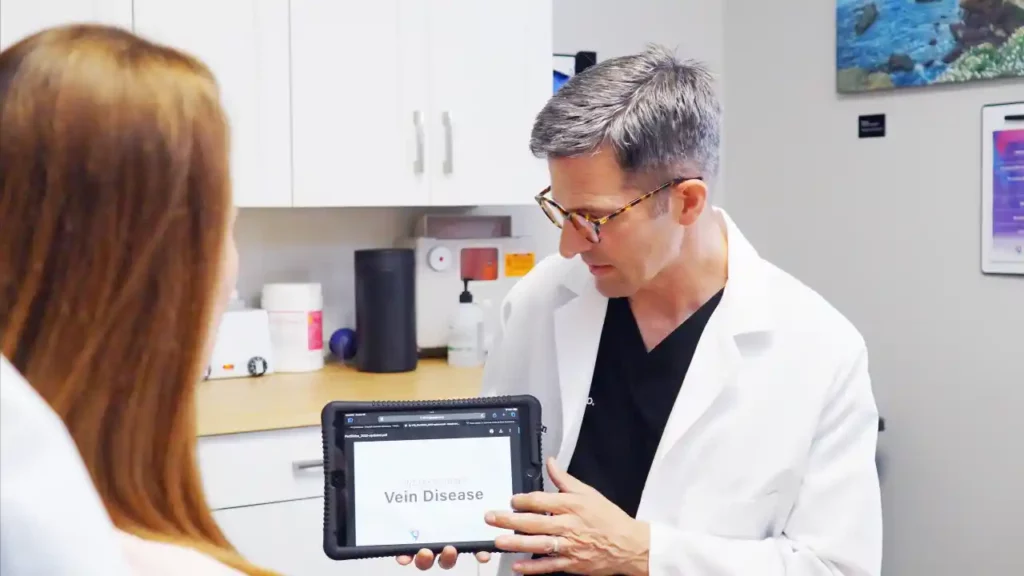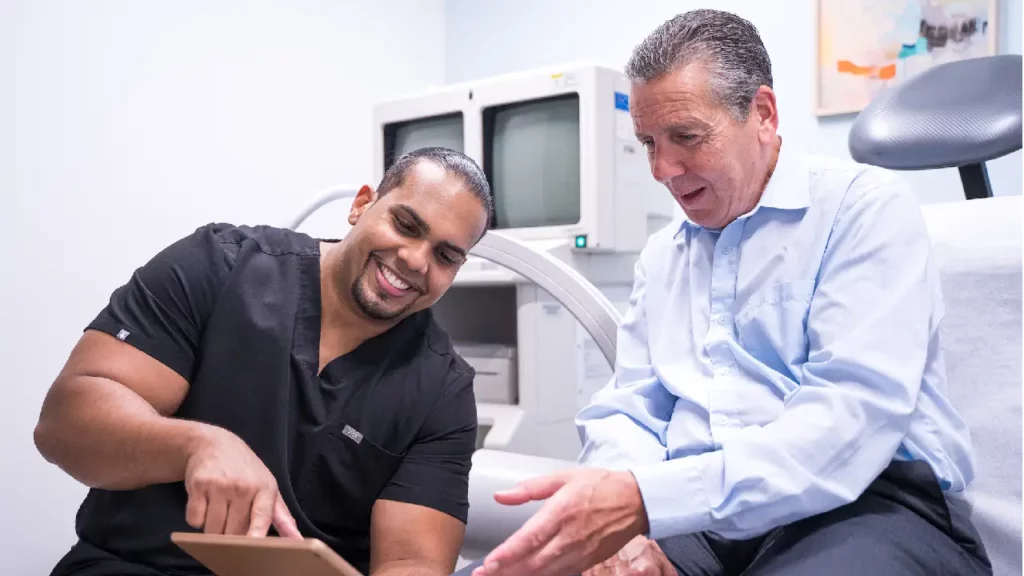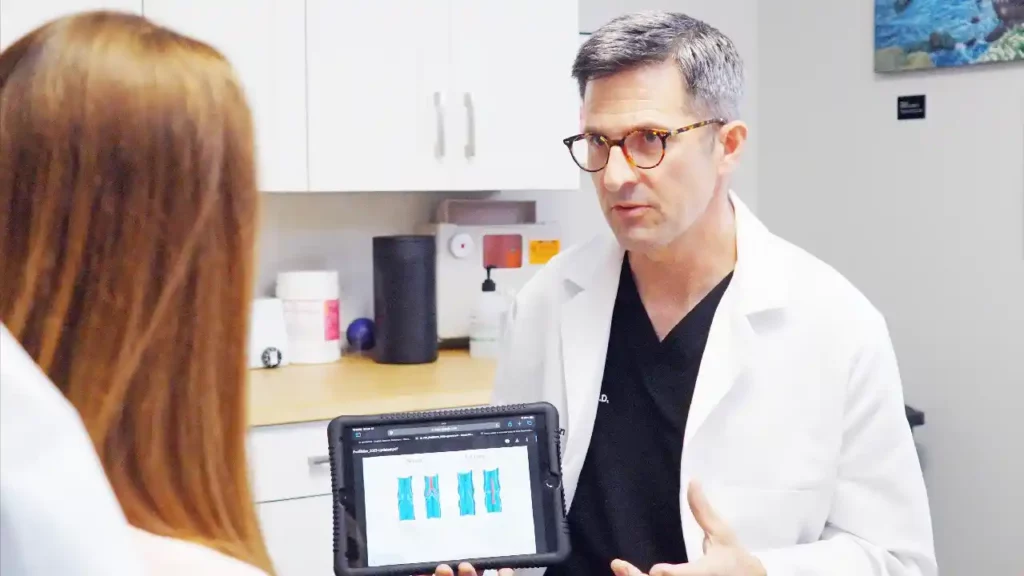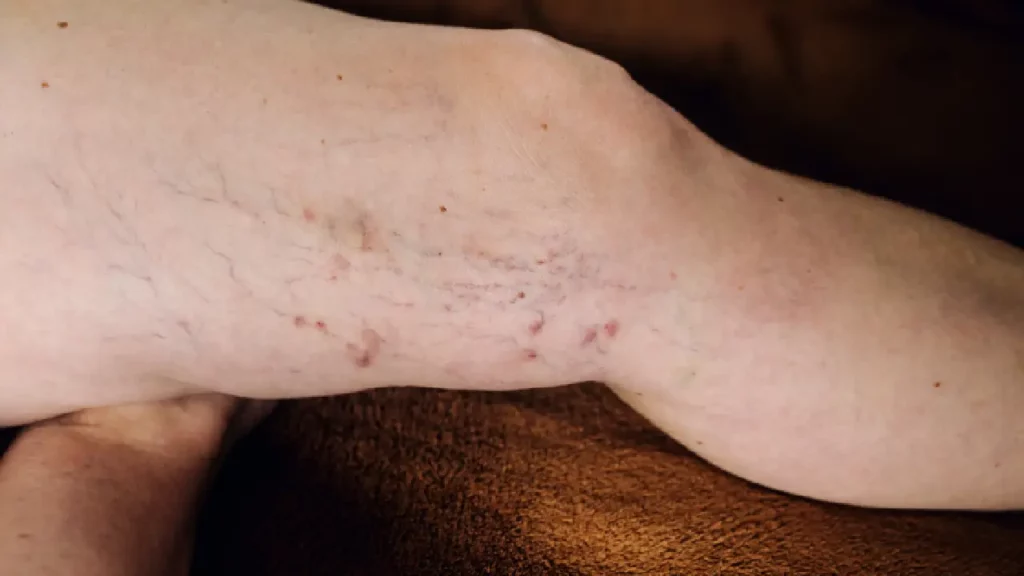At Vein Doctor, we understand that chronic vein conditions can significantly impact your life. What many people don’t realize is that these conditions are not just physical; they can also have profound effects on your mental health. As board-certified vein doctors, we are committed to providing comprehensive care that addresses both the physical and emotional aspects of chronic vein conditions. In this article, we will explore the intricate link between mental health and chronic vein conditions and offer insights into how our holistic approach can help you achieve better overall well-being.
What Are Chronic Vein Conditions?
Chronic vein conditions are disorders that affect the veins’ ability to return blood from the limbs back to the heart. These conditions can lead to a variety of symptoms, including pain, swelling, and visible changes in the veins. Three common chronic vein conditions are spider veins, varicose veins, and chronic venous insufficiency.
Spider Veins
Spider veins are small, dilated blood vessels that appear close to the surface of the skin. They are usually red, blue, or purple and can look like a spider’s web or tree branches. While spider veins are generally harmless and do not cause pain, they can be a cosmetic concern for many people. They are most commonly found on the legs and face and can be caused by factors such as genetics, hormonal changes, and prolonged standing or sitting.
Varicose Veins
Varicose veins are larger, swollen veins that often appear twisted and bulging. They typically develop in the legs and can cause discomfort, pain, and a heavy feeling in the affected limbs. Varicose veins occur when the valves in the veins that help regulate blood flow become weakened or damaged, allowing blood to pool and the veins to enlarge. Risk factors for varicose veins include age, pregnancy, obesity, and a family history of vein problems.
Chronic Venous Insufficiency
Chronic venous insufficiency (CVI) is a condition where the veins have difficulty sending blood back to the heart, leading to blood pooling in the legs. This can result in symptoms like swelling, aching, and skin changes like discoloration or ulcers. CVI is often the root cause of varicose veins and spider veins, and it can lead to severe complications like deep vein thrombosis (DVT). It’s important to seek medical attention for proper diagnosis and management.

How Chronic Vein Conditions Affect Mental Health
Anxiety and Depression
The physical symptoms of chronic vein conditions, such as pain and discomfort, can lead to anxiety and depression. The visible appearance of varicose and spider veins may cause you to feel self-conscious and embarrassed, contributing to feelings of anxiety. Chronic pain and the inability to participate in activities you once enjoyed can lead to depression.
Stress and Sleep Disturbances
Chronic vein conditions often cause persistent pain and swelling, which can interfere with your ability to sleep. Poor sleep quality and chronic stress are closely linked, and the constant discomfort can make it challenging to get a restful night’s sleep. This can increase stress levels, leading to further mental health issues such as irritability, anxiety, and difficulty concentrating.
Social Isolation
The visible nature of varicose and spider veins can make you feel self-conscious about your appearance, leading to social isolation. You might avoid social activities, especially those that require wearing clothing that exposes your legs, such as swimming or wearing shorts. This can lead to loneliness and a decreased quality of life, further impacting your mental health.
Body Image and Self-Esteem Issues
Chronic vein conditions can significantly affect your body image and self-esteem. The appearance of unsightly veins can make you feel unattractive and self-conscious, leading to a negative body image. This can affect your confidence and how you interact with others, potentially causing you to withdraw from social situations and feel isolated.
Work and Productivity Issues
The pain and discomfort associated with chronic vein conditions can make it difficult to concentrate and perform well at work. This can lead to decreased productivity and increased stress about job performance and security. The physical limitations imposed by chronic vein conditions can also prevent you from engaging in certain work-related activities.
How Poor Mental Health Affects Vein Health
Increased Stress Levels
Stress can lead to the release of stress hormones like cortisol, which can cause inflammation and damage to your blood vessels. This can exacerbate existing vein conditions like varicose veins and chronic venous insufficiency, making symptoms more severe and harder to manage.
Poor Circulation
Mental health issues, such as depression and anxiety, can lead to a sedentary lifestyle. Lack of physical activity can impair circulation, causing blood to pool in your veins. This can increase the risk of developing varicose veins and other chronic vein conditions.
Unhealthy Lifestyle Choices
Poor mental health often leads to unhealthy lifestyle choices, such as smoking, excessive alcohol consumption, and poor diet. These behaviors can negatively impact your vein health by increasing inflammation, reducing circulation, and contributing to vein conditions.
Weight Gain
Mental health issues can also contribute to weight gain due to emotional eating and a lack of physical activity. Excess weight puts additional pressure on your veins, particularly in the legs, which can lead to or worsen varicose veins and chronic venous insufficiency.
Delayed Treatment
When struggling with poor mental health, you might be less likely to seek medical attention for vein issues. This delay in treatment can lead to the progression of vein conditions, causing more severe symptoms and complications. Early intervention is essential for managing vein health.
Tips to Improve Mental Health While Living With Chronic Vein Conditions
Living with chronic vein conditions can be challenging, but there are strategies to improve your mental health while managing your physical symptoms. At Vein Doctor, we believe in a holistic approach to care that supports your physical and emotional well-being. Here are some tips to help you maintain good mental health while living with chronic vein conditions:
Engage in Regular Physical Activity
Regular physical activity is essential for both your vein health and mental well-being. Exercise helps improve circulation, reducing the symptoms of chronic vein conditions. It also releases endorphins, which can elevate your mood and reduce stress. Activities like walking, swimming, and yoga are gentle on your veins and can be easily incorporated into your daily routine.
Practice Mindfulness and Relaxation Techniques
Mindfulness and relaxation techniques, such as meditation, deep breathing exercises, and progressive muscle relaxation, can help you manage stress. These practices promote a sense of calm and well-being, making it easier to cope with the discomfort and challenges of chronic vein conditions. Set aside time each day for mindfulness practice to improve your mental health.
Maintain a Healthy Diet
A balanced diet rich in fruits, vegetables, whole grains, and lean proteins can support both your vein health and mental well-being. Proper nutrition helps maintain a healthy weight, reducing the pressure on your veins. Additionally, certain foods, such as those high in omega-3 fatty acids, can help reduce inflammation and improve your mood.
Undergo Minimally Invasive Vein Treatments
Minimally invasive vein treatments, such as endovenous laser treatment (EVLT) and sclerotherapy, can improve your vein health and alleviate symptoms like pain and swelling. These procedures not only enhance your physical well-being but also boost your mental health by improving your appearance and reducing discomfort. At Vein Doctor, we offer the latest minimally invasive vein treatments to help you feel better physically and emotionally.
Taking the First Step Towards Better Health
If you’re living with a chronic vein condition and struggling with its impact on your mental health, it’s important to know that you’re not alone. At Vein Doctor, we are here to support you every step of the way. By addressing both the physical and emotional aspects of your condition, we can help you achieve better health and a higher quality of life. Contact us today to schedule a consultation and alleviate the burden of your vein conditions.
